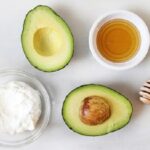Fever: What Not to Do When Caring for a Feverish Person
Don’t Take Medication Without Medical Advice

Taking medication incorrectly can lead to poisoning or drug shock.
There are many types of fever-reducing medications available, most of which contain paracetamol. However, some people believe that combining multiple drugs will result in faster relief and a more significant fever reduction. In reality, this is a completely erroneous notion. Each medication has unique effects, and combining them improperly can lead to an overdose if medications with similar formulas are used or if incompatible drugs are mixed, potentially causing drug shock, seizures, insomnia, or even poisoning.
Avoid Unscientific Folk Remedies

Rubbing lemon on the skin can cause burns due to its acidic nature.
In some cases, the life of a feverish person may be endangered by unscientific care methods and folk remedies of unknown origin that have not been tested or proven effective. Examples include wiping the skin with alcohol-diluted water, applying ice packs, rubbing lemon, scraping the skin, or bundling up. While these methods may temporarily reduce fever, they can also lead to poisoning due to the presence of alcohol or other toxins. Additionally, applying ice for too long can make the person shiver and feel cold. Furthermore, rubbing or squeezing lemon into the mouth during a seizure can cause chemical burns due to the acidic nature of lemons, and inhaling lemon juice can lead to pneumonia.
Avoid Drinking Cold Water or Tea

Tea can reduce or eliminate the effectiveness of fever-reducing medications.
Some families may have the habit of using chilled water from the refrigerator or strong tea to reduce fever. However, this can actually cause the person’s fever to spike, especially if the fever is due to digestive issues. In such cases, cold water can negatively affect the digestive system. Additionally, drinking strong tea can stimulate the brain, increase blood pressure, elevate body temperature, and reduce or eliminate the effectiveness of fever-reducing medications.
Avoid Eating Eggs, Honey, Spicy Food, etc.

Honey increases body temperature, leading to a higher fever.
Eggs are rich in protein, and when digested, they produce a significant amount of heat. This increases the body’s temperature and makes it difficult to cool down, prolonging and intensifying the fever. Similarly, honey can worsen a fever by generating a substantial amount of heat when ingested. Spicy foods should also be avoided by feverish individuals as they can increase body temperature and negatively affect the digestive system.
What do you think about the information we’ve shared? Were these tips helpful to you and your family? Please share your thoughts in the comments below!
Source: Consolidated
The Perfect Fried Egg: Discover the Japanese Secret to a Nutritional Powerhouse Side
Many people like to fry eggs with scallions, which is a delicious and healthy option. However, did you know that this simple vegetable can be a powerful ally in your kitchen? Scallions, when paired with eggs, not only enhance the flavor but also provide a nutritional boost and an extra layer of protection against certain cancers. Imagine a dish that tantalizes your taste buds and nourishes your body – that’s the magic of scallions and eggs!




































